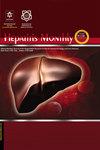从移植协调员的角度看获得知情同意的障碍:一项定性研究
IF 0.6
4区 医学
Q4 GASTROENTEROLOGY & HEPATOLOGY
引用次数: 0
摘要
背景:未经同意捐献身体器官导致等待移植的患者死亡率增加。众所周知,家庭的不情愿是器官捐赠的主要障碍,而媒体在激励器官捐赠方面发挥着至关重要的作用。目的:本研究旨在从伊朗各地移植协调员的角度探讨获得器官捐献同意的障碍。方法:在这项定性研究中,从2018年11月到2019年3月,对移植协调员进行了13次深入的半结构化面对面访谈。参与者采用有目的的抽样方法进行调查。参与者的年龄和工作经验分别在32-49岁和6-25岁之间。在一个私人房间里向参与者提出了开放式问题。一位经验丰富的采访者向协调员解释了研究的目标,每次采访平均持续50分钟。采用内容分析法对访谈脚本进行分析。结果:研究结果突显了获得脑死亡患者家属同意的困难。障碍可能是内部的,也可能是外部的。外部决定因素是医疗保健提供者缺乏同理心、医院外医生咨询不足、媒体内容以及亲属的不知情评论。内部决定因素是希望康复、否认和家庭成员之间的分歧。结论:医疗团队应与家属建立更好的联系,以获得他们的器官捐献同意。因此,必须为治疗团队制定培训计划,以便他们在脑死亡前后表现出更多的支持行为,并提高医院的护理质量。本文章由计算机程序翻译,如有差异,请以英文原文为准。
Obstacles to obtaining Informed Consent from the Perspective of Transplant Coordinators: A Qualitative Study
Background: The lack of consent to donate body organs leads to an increase in the death rate of patients on the waiting list for transplantation. Unwillingness of families is known as the main obstacle to organ donation, and the media has an essential role in motivating organ donation. Objectives: This study aimed to explore obstacles to obtaining consent for organ donation from transplant coordinators’ perspective throughout Iran. Methods: In this qualitative study, 13 in-depth semi-structured face-to-face interviews were conducted with transplant coordinators from November 2018 to March 2019. The participants were investigated using a purposive sampling method. The participants’ age and work experience ranged between 32 - 49 years and 6 - 25 years, respectively. Open-ended questions were asked from the participants in a private room. An experienced interviewer explained the study’s objectives to the coordinators, and each interview lasted on average 50 minutes. The interview scripts were analyzed using a content analysis method. Results: The findings highlighted the difficulty of obtaining consent from brain-dead patients’ families. The obstacles could be internal or external. External determinants were healthcare providers’ lack of empathy, inadequate consultation from doctors outside the hospital, media content, and uninformed comments from relatives. Internal determinants were hoping for recovery, denial, and disagreement among family members. Conclusions: The healthcare team should have a better connection with families to obtain organ donation consent from them. Therefore, a training program must be developed for the treatment team so that they show more supportive behavior and improve quality of care in hospitals before and after brain death.
求助全文
通过发布文献求助,成功后即可免费获取论文全文。
去求助
来源期刊

Hepatitis Monthly
医学-胃肠肝病学
CiteScore
1.50
自引率
0.00%
发文量
31
审稿时长
3 months
期刊介绍:
Hepatitis Monthly is a clinical journal which is informative to all practitioners like gastroenterologists, hepatologists and infectious disease specialists and internists. This authoritative clinical journal was founded by Professor Seyed-Moayed Alavian in 2002. The Journal context is devoted to the particular compilation of the latest worldwide and interdisciplinary approach and findings including original manuscripts, meta-analyses and reviews, health economic papers, debates and consensus statements of the clinical relevance of hepatological field especially liver diseases. In addition, consensus evidential reports not only highlight the new observations, original research, and results accompanied by innovative treatments and all the other relevant topics but also include highlighting disease mechanisms or important clinical observations and letters on articles published in the journal.
 求助内容:
求助内容: 应助结果提醒方式:
应助结果提醒方式:


